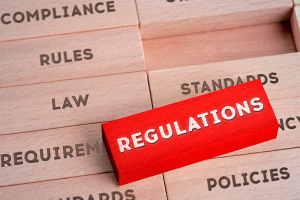Regaining a positive work ethic
Editor’s note: “Power Skills” is a 12-part series with one article posted monthly exploring the nontechnical tools today’s health care facilities professionals need to succeed and excel in their career goals. See more articles from the series here.
Simple gestures often reveal complex messages about a person's character. Do they offer their seat on a crowded train to someone who needs it or pretend to ignore them and look out the window? Do they let a faster car traveling behind pass them or speed up to block them? Do they offer to help get someone's carry-on bag from the plane’s overhead compartment or race to be first off the plane? Our choices in life's many decision-moments illustrate how we conduct ourselves when interacting with others in a professional setting.
For me, it is the choice one makes when they see a scrap of paper on the ground in a hallway that reveals their work ethic. Do they notice the paper or are they lost in their own train of thought? Do they see the paper but walk right past it? Do they see it, stop to pick it up, then throw it away?
Watch how a person interacts with a scrap of paper in a hallway, and you will gain a profound understanding of how that person navigates their time within the organization. Like a Carter Family song or sweet tea on a summer Sunday afternoon, a good work ethic is a timeless classic, a power skill that is important in yesterday’s, today’s and tomorrow’s workplace.
Four keys to a good work ethic
Let’s start by defining what makes a work ethic. In a September 2022 Harvard Business Review article, Tutti Taygerly, executive leadership coach and founder of Taygerly Labs, describes a person’s work ethic to be a “set of moral principles, values and attitudes around how to act at work.” She goes on to describe four components of a good work ethic:
- Reliability and dependability. Do you meet deadlines? Do you follow up when you say you will follow up? Do you act appropriately in meetings and other business settings?
- Productivity. Can you manage your priorities and deliver positive results consistently?
- Ownership and autonomy. Do you know when to show initiative? Are you willing to learn from feedback and recognize opportunities for growth?
- Collaboration and team support. Do you support your team members when asked or when you see them in need of help? Do you effectively work with others in your organization to achieve shared goals?
Think about your own experiences at work. Do you exhibit one or more of these traits at your organization? Do others seek your participation in ad hoc teams? Does your supervisor assign important tasks to you? Would any of your colleagues speak positively regarding your efforts related to these traits?
Once you are working at an organization, it is easy for peers to get a solid understanding of your work ethic. But how do you communicate your work ethic when you are seeking employment or are looking to advance your career? Jennifer Herrity, a career coach at Indeed.com, provides some great tips in a September 2023 article on how to communicate work ethic in resumes, cover letters and interviews:
- Resume. Emphasize some work ethic-related values associated with previous roles, such as highlighting instances when a previous client or employer selected you for a prestigious project or challenging task.
- Cover letter. Bring attention to skills associated with a strong work ethic, like dependability and discipline. Describe your desire for challenges and room for growth.
- Job interview. Arrive promptly, dress professionally, and speak respectfully. Respond with honesty to difficult questions, and illustrate your integrity, such as describing when you made a mistake but admitted to it and took steps to remedy the error.
Working ethic into the culture Similar to how an individual’s treatment of others can reveal the likelihood of a positive work ethic, the way an organization treats its employees can reveal the type of work ethic its culture enables.
Does the organization set the expectation that employees need to meet deadlines, or do missed deadlines go past without notice? Does the organization proactively seek customer feedback or make it near impossible for customers to let the organization know how it is performing? Do people that show initiative get called out, and, if so, is it to praise or prosecute them? Does the organization work employees until they burn out and then replace them with new employees, or does it work to ensure tasks and effort are effectively balanced? Does the organization pass the “sick relative” test? That is, how does the organization respond when an employee needs to care for a sick relative? Does it make that process easier or harder for the employee?
Like learning to play the oboe or dance the Viennese waltz, one can work to improve their work ethic with practice, a good ear, light feet and self-forgiveness for stumbles or off notes. Taygerly describes a few simple steps with which to get started:
- Follow the lead of peers, mentors and bosses who have a work ethic you’d like to emulate.
- Ask your colleagues to assess your work ethic, and follow up on suggestions they may have for your improvement.
- Develop self-discipline as it relates to job tasks and task prioritization.
- Act like you own the organization and it’s your own money on the line.
If you’re having a hard time actualizing this concept, whether individually or as an organization, there is, in my book, one simple step that you can take today on the road to a better work ethic: Stop, and pick up that scrap of paper.
Adam Bazer, MPD, is director of education at the American Society for Health Care Engineering.




